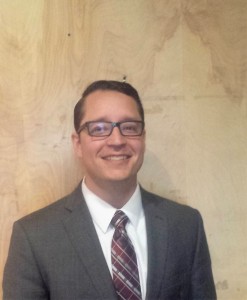SOUTHAMPTON–JD Parker-O’Grady, D-Southampton, may be young for a politician, but it doesn’t mean it should discount him.
Parker-O’Grady is facing off with incumbent Sen. Don Humason, R-Westfield, for the second Hampshire and Hampden district state senator seat and appears to face a difficult challenge trying to unseat Humason. Parker-O’Grady feels that his age is something that benefits him in this battle, especially as political discussions are becoming focused on issues facing younger voters, like marijuana legalization and opiate addiction.
“My age comes up a lot–I’m 32 years old, I’m young” Parker-O’Grady said. “I think my age is actually a benefit though, because I bring some new ideas and a fresh face into the senate.”
Parker-O’Grady said that he initially decided to run because opiates were taking hold of too many people in the communities around him, especially the younger generation and even his family. Parker-O’Grady felt that the cities, towns and the state were not doing enough to help those addicted and he wanted something done about it.
“Long-term care is the only cure,” he said. “As a state we need beds and facilities.”
In addition to the opiate crisis though, Parker-O’Grady wanted to run because he felt that Humason was not doing enough for his constituents, especially those in the LGBQT community.
“I felt that [Humason] hasn’t supported the district well, including voting ‘no’ on transgender bathroom legislation,” Parker-O’Grady said.
He was referring to the transgender anti-discrimination law that was passed by the state senate in May. Humason and three other Republicans voted against the bill.
“I don’t think you can pick and choose what rights people have,” Parker-O’Grady said.
These were the issues that spurred Parker-O’Grady to leave Northeastern University School of Law and pursue his campaign full-time. However, since then additional issues have come to his attention and he plans to fight passionately for them, like public education funding.
Parker-O’Grady said that if elected, he will do his best to get regional schools the money they were promised by the state for transportation. This stems from the issue of regional schools being promised funding from the state for their busing that has been short of what was actually agreed on.
“When you have these regional schools you promised busing and the district has to pick it up, it’s a huge budget issue,” Parker-O’Grady said.
This ties into another concern of Parker-O’Grady, who feels that more charter schools being added would be detrimental to the already-underfunded areas like Holyoke.
“The biggest problem is you’re taking away money from public local school boards and giving it to private enterprise,” he said. “I truly feel there’s a value to quality public education. You lose community development with private schools.”
Parker-O’Grady feels that he can provide on these issues and others not just because of his fresh face and new ideas, but also because of party affiliation.
“With me you would have a voice in that caucus,” he said. “If a republican is elected they are outside of that negotiation, but with a democrat like me we’re inside the negotiation.”
And for Parker-O’Grady, that may be the best way he can help his communities.


